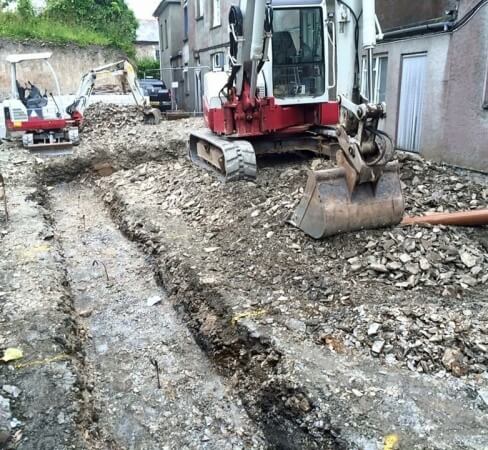There are some fantastic types of block paving in Cambridge, which add beauty to the outside spaces in which there’re able to be discovered. Paving bricks come in a number of shapes and colours and offer steady, dependable surfaces underfoot. Each one is sturdy for years of low-maintenance service. The type of block selected will decide the kind of maintenance needed. Appropriate, normal maintenance will ensure your block paving investment remains safe and secure for the long-term.
Kinds Of Block Paving
Be sure to know which kind of paving is put in prior to performing upkeep. Typically, you will find two varieties of block paving available, porous and impenetrable. A porous block paving is produced to ensure that water can run through it, and drain into the ground beneath. An impervious paving doesn’t permit water to circulate through it, but instead, water runs over surface of the paving and over adjoining surfaces. Impervious paving could be installed to permit water to drain between the paving, giving it a similar element for the permeable paving. Porous paving could be much more sensitive than impenetrable paving, and roughly applied maintenance techniques might result in early crumbling of edges and corners.
The type of block selected may also rely on the function and location of the installation. Ecological elements play an ever more significant component in the management of water in urban locations. Impermeable paving redirects storm water into water treatment plants but is generally tougher than porous blocks. Porous paving enables storm runoff to be purified by the ground on which it drops. Permeable paving has become the preferred alternative since it reduces stress on public water treatment facilities. www.eks-construction.co.uk
Crumbled Paving Could Imply Trouble
Cracked paving may indicate incorrect installation. Replacing these might be essential to prevent falls. When replacing blocks, be sure to check the base more than which they had been installed. Set up of either kind of block paving is similar. The ground below is excavated of all-natural soil and filled up with gravel and sand. This kind of base offers stability for the paving and can prevent them from cracking later on.
Maintenance Suggestions To Retain Beauty And Function
Both kinds of paving will require regular maintenance to preserve their beauty and function. Over time, the gaps in between impervious blocks will grow to be clogged with dirt along with other debris, which will hinder their water drainage function. It can be anticipated that this accumulation of silt will trigger a slow loss of function as time passes; studies show it balances out between three to six years.
Regularly sweeping off debris will stop staining and the growth of moss or unwanted weeds. When silt, moss or weeds grow to be unmanageable, a power washer could be used to remove them. Nevertheless, care has to be taken not to dislodge an excessive amount of of the jointing sand in between the paving stones. More caustic cleaners applied with a soft brush might be necessary for persistent stains or grounded moss and mildew. Make sure to add extra joint sand if any was dislodged. Correct sanding will support the firmness of the block and sealing the blocks could reduce or eliminate maintenance completely.


